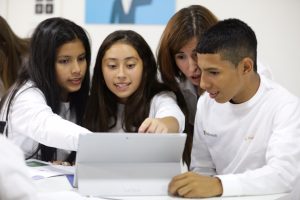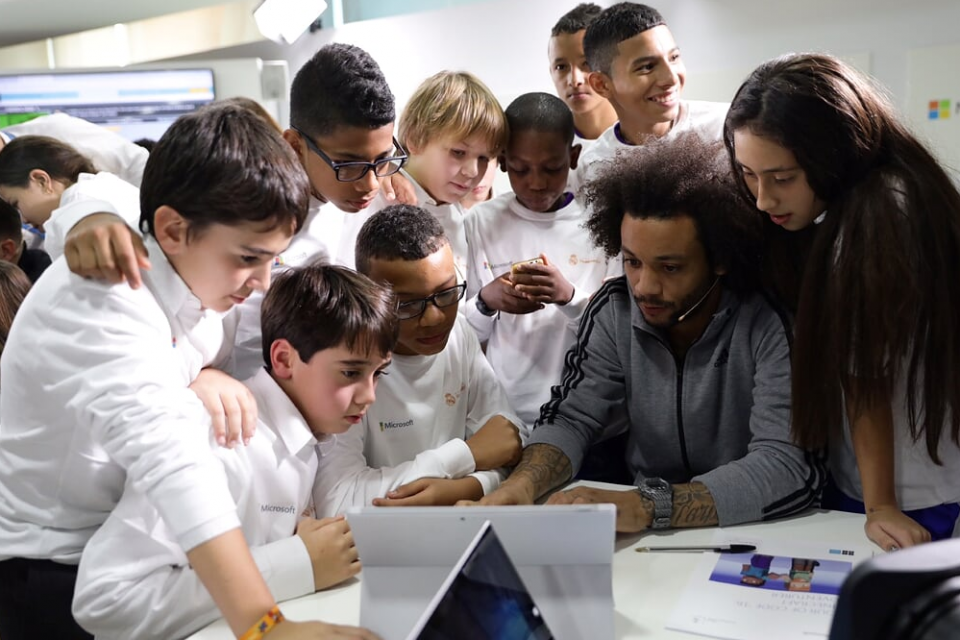Footballers from Real Madrid have used Skype to encourage more children to use technology and learn how to code.
Three stars from the Spanish club, one of the most successful in history, spoke to school students via Microsoft’s video service about the importance of learning computing skills.
Marcelo Vieira, Sergio Ramos and Isco Alarcon chatted to youngsters from Freixo, in Portugal, as part of Hour of Code, a project developed by Code.org that seeks to teach children basic coding.
Microsoft, a regular collaborator on Hour of Code, will hold more than 1,000 free programming events and workshops in over 60 countries this year. The company will host 40 workshops in Spain alone, with the aim of encouraging 2,000 boys and girls to learn new digital skills.
Around 150 children from schools in Spain, Portugal and Colombia took part in the first event of 2016, which also featured the Real Madrid Foundation and the three footballers.
Microsoft recently released Minecraft Hour of Code Designer, which allows users to create their own version of the popular block building game. The program is available in around 50 languages, including Spanish, Cataln, Basque and Galician.
It is hoped that the Hour of Code Designer will prove as popular as last year’s Minecraft tutorial, which reached more than 30 million students across the world.
According to the European Commission, by 2020 there will be 900,000 jobs in the technology sector that need to be filled. McKinsey, the consulting firm, published research last year revealing that more than a third of the companies they surveyed cannot find workers with the right digital skills.
 “Education needs to evolve in line with the needs of society and transform and adapt to increasingly digital environments. The schoolchildren of today will do jobs that have not been invented yet,” said Pilar López, President of Microsoft Ibérica.
“Education needs to evolve in line with the needs of society and transform and adapt to increasingly digital environments. The schoolchildren of today will do jobs that have not been invented yet,” said Pilar López, President of Microsoft Ibérica.
“For this reason, quality teaching in programming and computing for children is essential from primary school onwards. By providing this training, we will be preparing them to meet the job requirements of the digital economy.”





